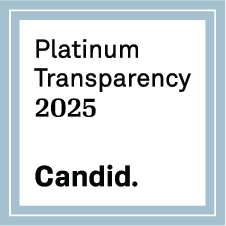Community-Led Drone Mapping: Improving Livelihoods in Stellenbosch's Informal Settlements, South Africa
Community-Led
The Humanitarian OpenStreetMap Team (HOT), Slum Dwellers International (SDI), and the Community Organisation Resource Centre (CORC) have partnered to develop high-quality map data with the aim of improving the living conditions, livelihoods and overall resilience for residents (particularly women) of informal settlements in Stellenbosch, with a special focus on Enkanini and its surrounding informal settlements.
In South Africa, over 4 million of the population live in informal settlements, making up 12.2% of the country's population. Shacks or temporary houses, often built illegally on municipal land, comprise informal settlements in South Africa. Stellenbosch Informal Settlements is home to several informal settlements within its municipality area. It covers 831 square kilometres with a population of 175,411, as per the 2022 census.
The Challenge
Ekanini, which translates to "taken by force", is one of the many informal settlements located in Stellenbosch. Ekanini, like many other settlements, faces inadequate access to services, such as electricity, water, and waste management, impacting the quality of life of its residents.
**OUR APPROACH **
The Humanitarian OpenStreetMap Team (HOT), [Slum Dwellers ]International](https://sdinet.org/) (SDI), and the Community Organisation Resource Centre (CORC) have partnered to develop high-quality map data with the aim of improving the living conditions, livelihoods and overall resilience for residents (particularly women) of informal settlements in Stellenbosch, with a special focus on Enkanini and its surrounding informal settlements.
HOT will support CORC and community partners
- The team will acquire, process, and host drone imagery for the areas of interest in Stellenbosch.
- Oversee digitisation of buildings and road networks, including mobilizing the open mapping volunteer community and building local digitisation capacity
- Train and accompany local teams in the use of ODK and Field Tasking Manager (Field-TM) for local data collection.
- Provide and manage safe and secure data storage for data collected through the FieldTM and train CORC and community partners in how to access and use all data listed above.
At the end of the project
- High-quality drone images, 3d meshes and elevation models for the area of interest will be developed
- Built local capacity on drone operations, imagery processing and establishment of hosting.
- Digitised high-quality building and road data sets for the area of interest in OpenStreetMap (estimated 150,000 buildings and 300 km of road)
- Completed successful field mapping campaigns in the area of interest.
- Built local capacity for designing, managing and implementing large-scale field mapping /survey campaigns.
- Built local capacity for data storage, access, and governance and the development of basic map and analysis products.
The end-to-end technology process will include the following steps:
- The open drone imagery is acquired, processed and hosted with HOT’s support on the HOT platform OpenAerialMap (OAM).
- The images are then used by HOT community mappers to digitize features into OpenStreetMap using open-source software (remote mapping)
- Those features are imported into HOT’s Field Tasking Manager (Field-TM), which splits the area to be mapped into mapping ‘tasks’ that teams can take responsibility for and access via their mobile phones to coordinate efforts and avoid duplication.
- Once a task is assigned to a team, the mappers gather data for each building or household and submit it once they have an internet connection.
- The Field TM is designed such that appropriate data (for example, information on services) is made accessible for integration into OpenStreetMap, while sensitive data (for example, demographic information) goes directly to a secure, private server.
**The wider Know Your City initiative ** This work in South Africa is a part of a global effort called Know Your City (KYC). Slum Dwellers International leads KYC, with support from HOT and other partners. Similar local initiatives are currently ongoing in other African cities, but the ambition of the KYC partners is to scale this technology and capacity to support the autonomy and agency of communities living in informal settlements globally.
Image used: ScreenShot of Stellenbosch captured from Open Aerial Map on August 4, 2025 15:23.






